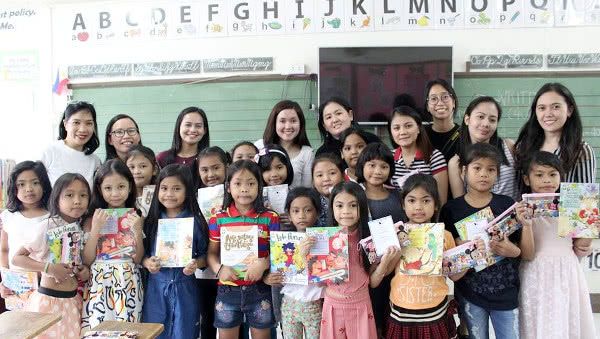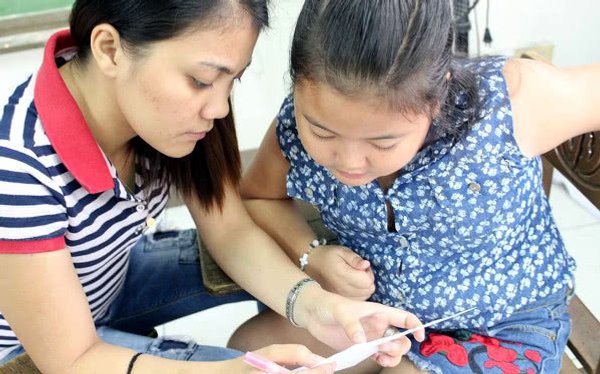I heard it said that twenty-something is a critical stage on which the rest of our years are founded. How we in our twenties spend our free time will determine the nature of our life, for the path between work and the pursuit of mundane and must-do activities is where life is.
I am twenty-something, and I am at a point where big responsibilities take precedence over idealistic options.
It all began when I joined the social outreach program REAP (Reading Enhancement and Academic Program). There, my mind was struck by the real life stories of young students and volunteers.
Two years ago, shortly after graduating from college and embarking on my first job, I was invited to a REAP volunteers’ preparatory session. Zohra Jane Esperal presided and her spiel of “join-us-in-this-personal-project challenge” made an impact on me. My take-off point then was, “I will join REAP because I want to see the person that I can become.”
REAP aims to provide creative avenues to improve the reading literacy of Grade 2 students in Heneral Pio del Pilar Elementary School (Bangkal, Makati City). It runs for 2 hours every Saturday afternoon.
The first year at REAP was more of me learning, than the kids learning from me. Seeing how the young students eagerly pushed their way to catch up on every reading module we prepared, I realized that some Filipinos are poor in reading not by choice, but by chance. They did not have opportunities to learn how to read at an early age. That realization made me demand more from myself, to do more, to be more of service to others.

Most of us REAP volunteers are not professional reading teachers, but I saw how the little relevant talents that we possess can go a long way to enrich lives. One day, a student gave me a friendship band that she personally made. It was her Christmas gift to me. On that same occasion, I saw quite a few of the kids eating only half of the meal that we served them. I asked why they did not finish their food, and I got similar answers – they were reserving the other half for their brothers, sisters, Mom or Dad. I told myself, “Wow! these students have almost nothing but they still find ways to give.”
I thought that this applied to the volunteers as well. In terms of teaching skills, we were definitely deficient, but that did not hinder us from sharing the little that we had.
In my second year with REAP, I was designated to head the group. The role gave me a better perspective of the program, especially about the crucial the role of each volunteer in achieving the objectives of REAP. More than teaching young girls to read, REAP was about teaching them life skills. These skills they could learn from the example of the volunteers themselves. REAP, as the acronym suggests, implies sowing the good seeds of example in the hearts of the students.
One of the REAP founders explained: “For us volunteers, it is no longer a matter of making better use of our time through volunteerism, but the actualization of our individual beliefs that one of the best and surest ways to alleviate poverty is thru quality holistic education.”

“Watching” from my vantage point, I see how each volunteer transforms and matures in the course of the program. Working with them, I am amazed at how they - at twenty-something - learn to put premium on the needs of the students and those of the other volunteers, at the expense of personal comfort. I am amazed at how they give themselves to a cause bigger than their needs and personal ambitions. I am amazed at how they allow themselves to be carried off by the spirit of service!
St. Josemaria mentioned in Christ is Passing By, “If we are to love, we must have a big heart and share the concerns of those around us.” Thanks to REAP, I have the joy of seeing this concern for others put into action, and magnified in the cheerfulness of the volunteers.
My motivation for joining REAP at the start was “to see the person that I can become.” But in the course of time, I found myself paying more attention to what our students and volunteers can become. I realized that it is in seeing how they are now (and what they can be years after) that I will get to completely unveil to myself the person that I have become (and what I can be).
Krizia Cetoy
